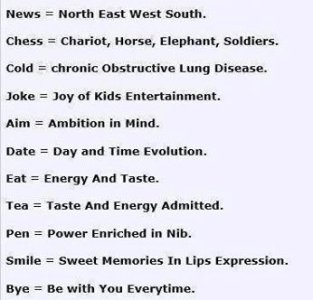Share is used in two contexts. In one context the original item reduces in size like if you share money, and other share is in which original item stays the same like sharing stories, happiness, knowledge etc.
In hindi
baat is the word used most commonly for share. You
baat the property and you also
baat the knowledge.
Batwara is another form of baat which is used if a physical item is distributed.
We commonly say "Ye gyan (knowledge) baat raha hai", it wont be wrong (though very uncommon) if someone says
"Main aap ke sath ek kissa baatna chahta hoon"
But it is very common to say
"Main gyan baatna chahta hoo"
I think the magic word here is
story instead. In english the word story is widely used for many purpose. In hindi it would be more specific. (
we like to be specific, just like we have a name for every relation even drilled down to the gender and seniority while in english they just mention the category of relation. for example uncle in english could be mama or chacha, grand parents, brother in laws etc are other example)
So, a story could be a kahani (fictional) , a kissa ( real), life story, kismat etc and the word
baat will change with it.
Main apna dukh dard aap se baatna chahta hoo. [here dukh dard is always a back story]
hence,
"Main aap ke sath ek kissa/kahani baatna chahta hoon"
is my final entry for the prize money.

let me know how you want to
baat your paisa with me

.














